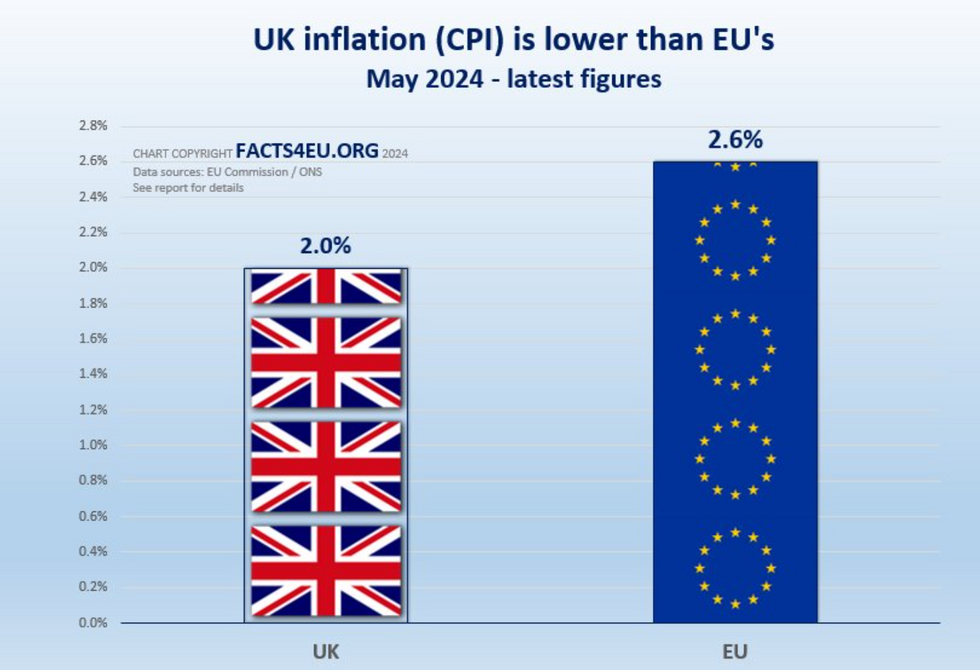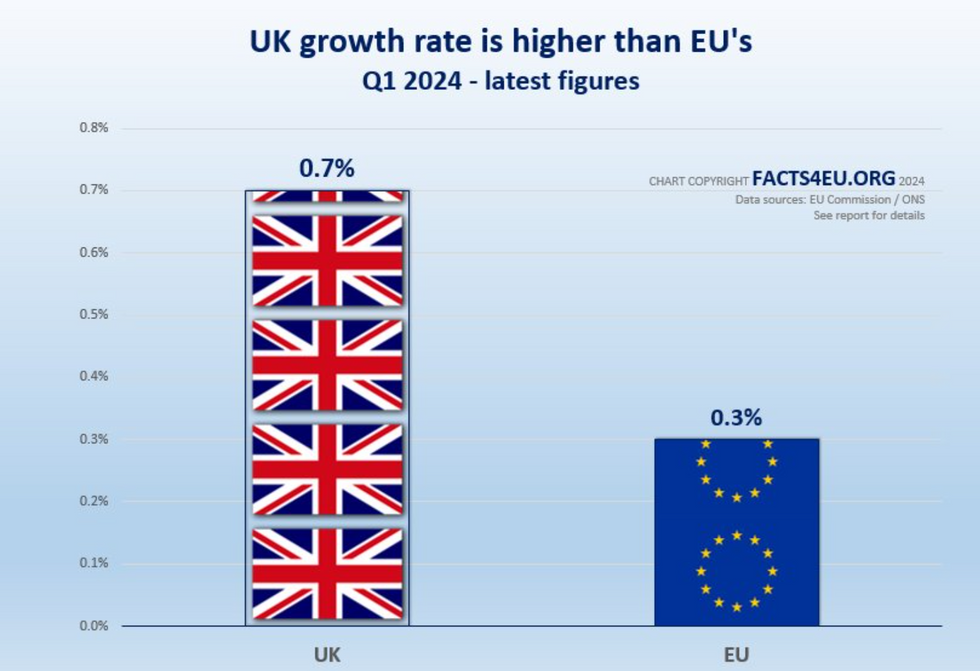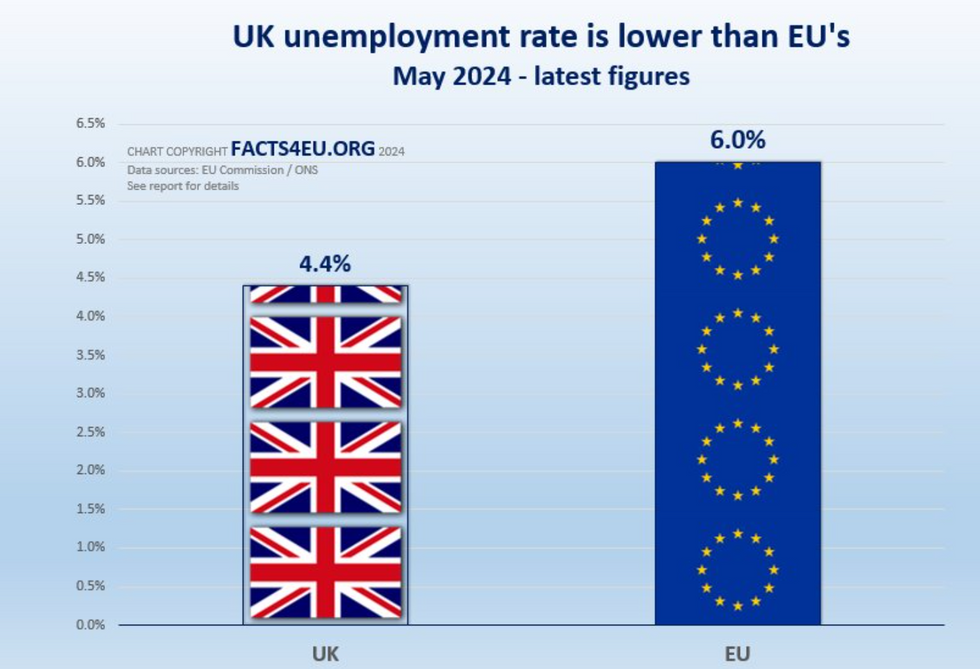Brexit Britain beats the EU on three top economic issues

The UK beat the EU on top economic issues of GDP, inflation and unemployment rates
|Getty, © Brexit Facts4EU.Org 2024
Figures from Eurostat show the UK's economy is growing faster than the EU
Don't Miss
Most Read
Latest
Chancellor Rachel Reeves opened her first speech in July stating that the new Labour government has inherited "the worst set of circumstances since the Second World War."
But things are looking up for Brexit Britain as the country has beaten the EU on three top economic measures.
According to data from the EU Commission's statistics agency (Eurostat), the UK has come out on top with inflation, GDP and unemployment rates.
Inflation

This bar chart shows the UK inflation rate is lower than the EU's
|© Brexit Facts4EU.Org 2024
The inflation rate in the UK, or by how much consumer prices are increasing, is currently lower than in the EU.
The UK inflation rate was two per cent in June 2024, unchanged from the previous month when inflation fell to its lowest rate since July 2021.
Figures for May 2024 show the Euro area annual inflation rose to 2.6 per cent, up from 2.4 per cent in April.
The latest figures from June 2024 show the EU inflation rate has dropped to 2.5 per cent but this is still 0.5 per cent higher than in the UK.
GDP growth rate

This bar chart shows the UK growth rate is higher than the EU's
|© Brexit Facts4EU.Org 2024
The figures also show that the UK's economy is growing faster than the EU.
The UK gross domestic product (GDP) is estimated to have increased by 0.7 per cent in the first quarter of 2024 (Jan to March).
The GDP increased by 0.3 per cent in Quarter 1 2024 compared with the same quarter a year ago.
Meanwhile, GDP is up only 0.3 per cent in the EU area and the EU in the first quarter of 2024.
The UK also beat the following countries for GDP growth in Quarter 1 of 2024:
- USA: 0.3%
- Germany: 0.2%
- France: 0.2%
- Japan: -0.5%
LATEST FROM MEMBERSHIP:
Unemployment Rate

This bar chart shows the UK unemployment rate is lower than the EU's
|© Brexit Facts4EU.Org 2024
According to the latest figures, the UK unemployment rate is 4.4 per cent with around 1.53 million people aged over 16 unemployed.
Over the last year employment levels have fallen by around 312,000 and the employment rate has fallen.
However, in the EU the figure is much higher and in March 2024 the unemployment rate was 6.0 per cent, down from 6.1 per cent in 2024.
Eurostat estimates that 13.258 million people in the EU were unemployed in March 2024.
Compared with the same time period last year, EU unemployment increased by 175 thousand but decreased by 51 thousand in the euro area.










